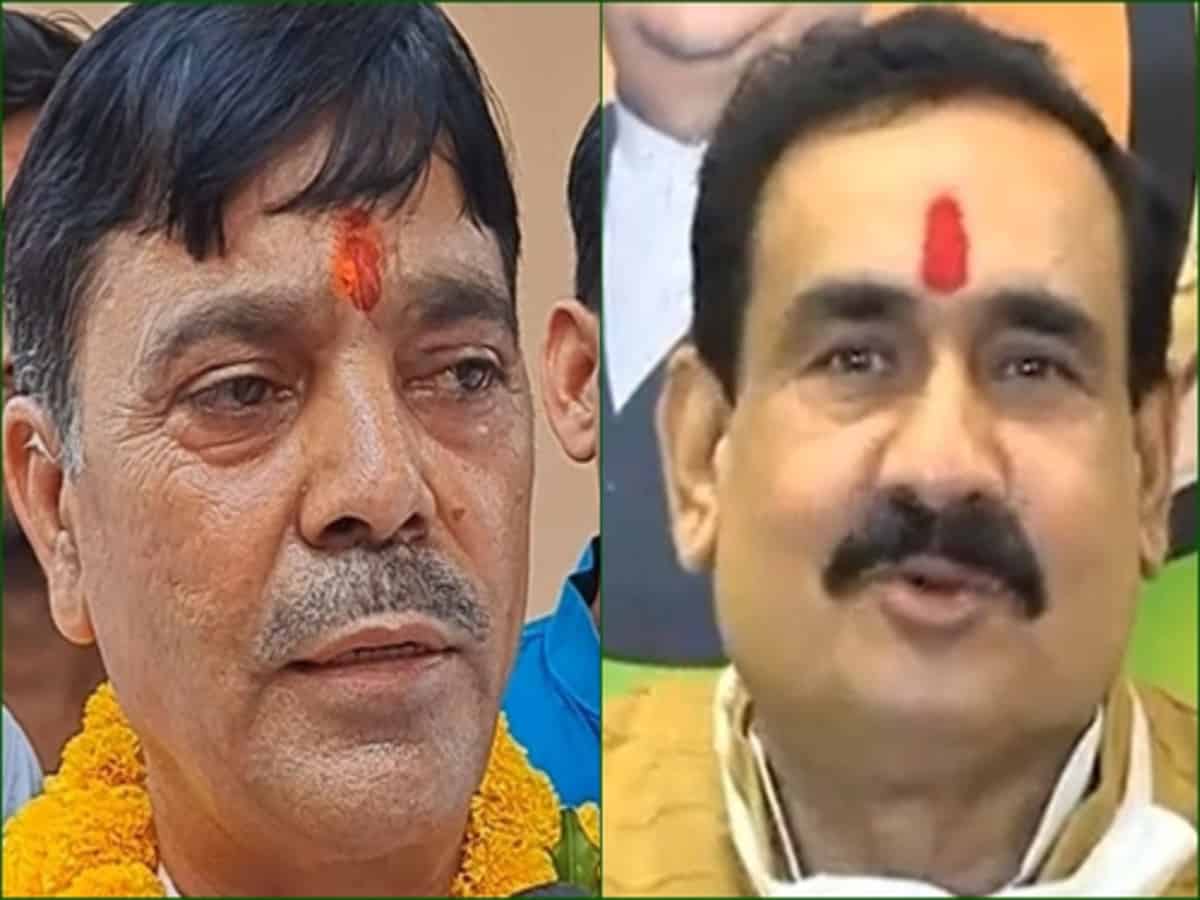
Bhopal: While the Congress has executed a well planned ideological stroke by fielding Vikram Mastal — onscreen ‘Hanuman’ — against the BJP’s one of strongest and the longest serving Chief Minister, Shivraj Singh Chouhan, it has attempted to corner the state home Minister, Narottam Mishra also through an the RSS old guard, Avdhesh Nayak.
With fielding rebel Avdhesh Nayak, a strong Brahmin face with RSS background, against Narottam Mishra, who has established himself as firebrand Hindutva leader in Madhya Pradesh, the Congress has made the Datia Assembly seat’s electoral fight the most interesting.
Nayak joined the Congress in August this year in style when his convoy of around 100 vehicles reached Bhopal. He joined the Congress in the presence of Kamal Nath and Digivijaya Singh.
Nayak contested the 2003 Assembly election from Datia on BJP’s ticket but lost to Congress’ Ghanshyam Singh by 2,904 votes. The former RSS leader was then accused of fanning communal tension to consolidate majority votes. But the trick did not pay off.
Importantly, the rift between the two BJP leaders — Nayak and Mishra — started in 2008 when Mishra moved to Datia after Gwalior’s Dabra seat was reserved for the Scheduled Caste (SC). The rift between these two leaders continued to get larger behind the political curtain as Mishra’s supporters looked at Nayak with suspicious eyes and accused him of hatching a conspiracy to weaken the leader of his own party.
The internal rift between these two leaders was visible in the public domain after Mishra managed to win a breathtaking contest in 2018 against Congress’ Rajendra Bhart with a margin of 2,600 votes. Later during a pomp and show after the election in 2018, Avdhesh Nayak, approached Mishra in the crowd and garlanded him. Mishra, on the contrary, humiliated Nayak, pulled the garland apart and moved away.
Four and half years later, the two have become arch-rivals now. Both leaders belong to the Brahmin community and have established themselves on the same hard-Hindutva path.
Sources told IANS that Mishra has been facing the resentment of the people because of his controversial statements, growing crime against women across the state, and huge corruption. Notably, in the past three and half years, whenever, CM Chouhan government faced wrath from the opposition in and outside the Assembly, Mishra stood as a shield.
Sources said that Mishra was among those BJP leaders who were found performing very poorly in the party’s survey before the ticket distribution; however, he is trying to convince people by highlighting developments of Datia in the past few years, especially medical college and airport. As per the reports, CM Chouhan’s government has invested huge amounts for the development of Datia.
More importantly, Mishra has been a tough political rival of the opposition Congress as he had played a crucial role to topple the Kamal Nath-led Congress government in 2020. And therefore, in a bid to defeat Mishra in Datia, the Congress envisaged an aggressive campaign highlighting the rampant corruption, abuse of power and 18-years of misrule of the BJP government against Congress’ promises of farm loans and power bill waiver, LPG at Rs 500, Rs 1500 under Nari Samman and others.
Surrounded by lush greenery, temples and ponds, the agrarian Datia was a part of the Bundelkhand region before Independence. In 1956, when Madhya Pradesh came into existence, Datia was merged with the Gwalior-Chambal region.
Upper caste-dominated Datia Assembly seat has a total of 1,90,905 votes, with 1,02,632 male and 88,261 female voters, according to the election commission’s 2018 data. Brahmans and Thakur account for 22 percent of the total voters, while OBCs voters are estimated to be 50 per cent. Minority, SC and ST voters accounted for the remaining 28 percent.
In the 2018 Madhya Pradesh elections, Datia recorded a voter turnout of 76.77 percent. In 2013, the turnout was 75.31 percent, and in 2008, it was 75.39 percent.



